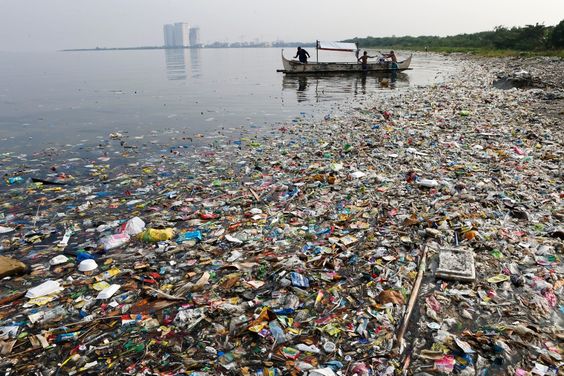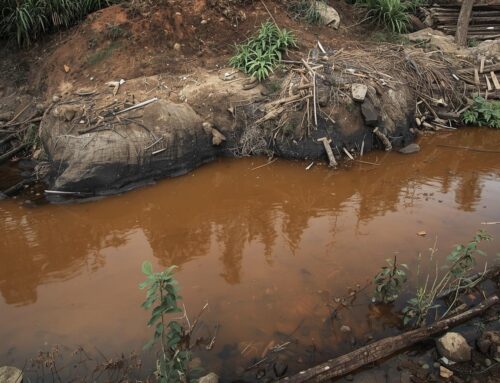Climate change continues to be one of the most pressing issues of our time, with its far-reaching impacts on ecosystems, economies, and human lives. As we witness the consequences of carbon emissions and environmental degradation, it becomes imperative for individuals and organizations alike to take proactive steps towards reducing our carbon footprint and fostering a greener, more sustainable future.
One of the key strategies in mitigating climate change is the adoption of sustainable practices that minimize the release of greenhouse gases into the atmosphere. From renewable energy sources to eco-friendly transportation, there are various measures we can implement to curb carbon emissions. However, one often overlooked aspect is the role of everyday consumer choices in shaping our environmental impact.
The confusing and increasingly unpredictable climatic conditions and unsustainable human activities have created adverse impacts on the environment. Recent researches by the Columbia University (2018) showed that the earth is in the midst of a 40-year-long global warming drift instigated by human activities. As per NASA report since 1880 climate change records began, the first half of the last 4 years – 2015, 2016, 2017 and 2018 – all take the highest four hottest recorded periods ever documented. Presently, the average surface temperature on earth between January and June, 2018, is the third hottest half-year on record. Major issues such as natural hazards have been triggered by unguarded anthropogenic activities. This has awakened the public to the reality of a threatened environment as the effects of these problems continue to increase. Added to these, there are emissions from gasoline vehicles and industrial activities which give off huge amounts of hydrocarbons which can contribute to health problems. These corresponding global consequences of climate change issues have increased the need for nations to stride towards compulsory climate change responsibility and strategies to minimize these effects. Research and studies need to be designed considering future climatic trends as well as policies for environmental management and sustainability.
Hence, this chapter orchestrates the salient information about components of environmental management and agroforestry as adaptation measures for the minimization of climate change. Environmental management measures elaborated in this study include the enforcement of polices on air quality and land degradation and the minimization of automobiles and industrial waste emissions that hugely contribute to atmospheric pollution of hydrocarbons. Agroforestry measures discussed on include the promotion of afforestation, agriculture, intensive forestry activities, environmental greening and conserving existing forest reserves in both rural and urban areas. These measures are highlighted as having the capability of minimizing climate change by reducing the extent to which greenhouse gases (GHG) deplete the ozone layer that protects the earth. Obviously, the implementation of key policies and making investments will effectively deal with climate change. The phasing out of fossil fuel automobiles, campaigns against deforestation/tree felling, energy efficiency, technology application and capacity building and information dissemination are basically expedient measures for global climate resilience.
Enter Sokobags Limited, a pioneering manufacturing company that has been at the forefront of promoting sustainability since 2016. Specializing in the production of ethically sourced, eco-friendly reusable bags. Sokobags has played a significant role in reducing the carbon footprint of individuals and organizations nationwide.
At the heart of Soko bags mission is the commitment to providing consumers with high-quality, environmentally responsible alternatives to single-use plastic bags. By encouraging the widespread adoption of reusable bags, Sokobags aims to combat the detrimental effects of plastic pollution on our planet’s ecosystems.
So, how exactly does Soko bags limited contribute to greening our environment and combating climate change?
- Reducing Single-Use Plastics: Single-use plastic bags are a major contributor to pollution, clogging waterways, harming wildlife, and releasing harmful toxins into the environment. Soko bags offers a sustainable Packaging solution by producing reusable bags that can be used multiple number of times for shopping, significantly reducing the demand for single-use plastics.
- Ethical Sourcing: Soko bags prioritizes ethical sourcing practices, ensuring that their materials are obtained responsibly and sustainably. By using eco-friendly materials such as organic cotton or jute fabrics, Sokobags minimizes the environmental impact of their production processes.
- Promoting Behavior Change: Beyond manufacturing eco-friendly products, Soko bags actively promotes behavior change by raising awareness about the importance of reducing plastic waste and adopting sustainable lifestyles. Through educational initiatives and advocacy campaigns, Soko bags inspires individuals and organizations to make environmentally conscious choices.
- Corporate Partnerships: Soko bags collaborates with businesses and organizations to implement sustainable solutions tailored to their specific needs. Whether through customized reusable bags for retail outlets or eco-friendly promotional merchandise for events, Soko bags helps companies reduce their carbon footprint while enhancing their brand’s commitment to sustainability.
- Measurable Impact: Since its inception, Soko bags has made significant strides in reducing plastic pollution and carbon emissions. By providing eco-friendly packaging alternatives to thousands of consumers worldwide, Soko bags has helped divert countless single-use plastic bags from landfills and oceans, thereby mitigating environmental harm and preserving natural resources.
As we strive towards a more sustainable future, it is essential to recognize the role of companies like Soko bags in driving positive change. By prioritizing environmental stewardship and innovation, Soko bags exemplifies how businesses can play a pivotal role in greening our environment and combating climate change.
In conclusion, addressing climate change requires a collective effort involving individuals, businesses, and governments alike. By embracing sustainable practices, reducing our reliance on single-use plastics, and supporting companies committed to environmental responsibility, we can make significant progress towards building a healthier, more resilient planet for future generations. Let us all join hands in greening our environment and securing a sustainable future for all.





Leave A Comment